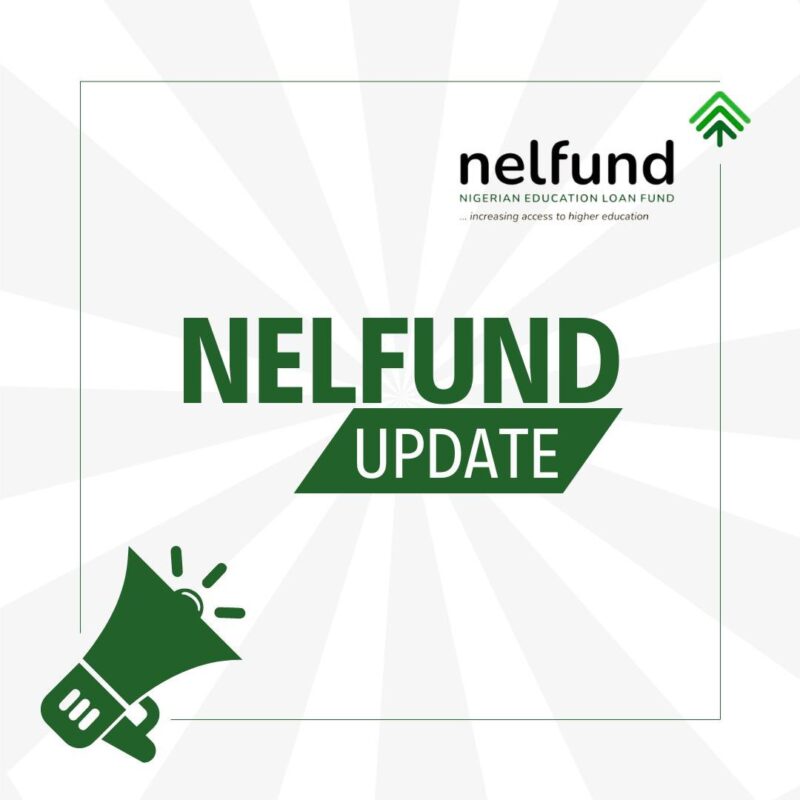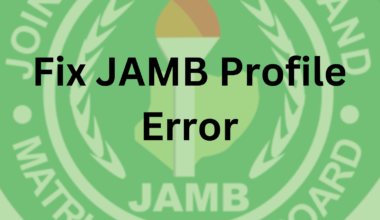Since the removal of subsidies on education in Nigeria, tuition fees have significantly increased which has placed a heavy financial burden on students and their families. This rise in costs has prompted the government to introduce measures aimed at alleviating the financial strain, one of which is the student loan scheme under President Bola Tinubu’s administration.
Historically, education in Nigeria was more affordable and it has allow a broader segment of the population to access tertiary institutions without excessive financial hardship. However, the current economic landscape has shifted dramatically, leading to a situation where many students struggle to finance their education.
What is Nelfund Student Loan?
The majority of Nigeria’s population consists of youths eager to pursue their dreams. In an age marked by digital innovation and online income opportunities, many young individuals find themselves seeking financial means to support their education. In response, the government has established Nelfund through the Access to Higher Education Act of 2024 in order to provide interest-free loans to students enrolled in public tertiary institutions across Nigeria.
The Access to Higher Education Act of 2024 replaces the previous 2023 Student Loan Bill, addressing its shortcomings while expanding coverage for students. This new legislation mandates the creation of Nelfund as a corporate entity responsible for managing and disbursing loans to eligible students which will cover tuition fees and living expenses for those attending public tertiary institutions and vocational training programs in Nigeria.
Funding for Nelfund will come from a portion of taxes, levies, and duties collected by the Federal Internal Revenue Service (FIRS), with 1% allocated to a General Reserve Fund dedicated to financing student loans.
How Much Can a Student Get?
The loan amount depends on tuition and other school-related fees. Funds will not be disbursed directly to students but will instead be paid to the institutions.
NELFUND will cover an institutional access fee, granting students access to lectures, examinations, tutorials, and seminars. Additionally, a monthly stipend will be provided as part of the loan, though the exact amount has not been disclosed.
Eligibility Criteria For Nelfund Student Loan
To qualify for the Nelfund student loan, applicants must meet specific criteria:
- Citizenship: Only Nigerian citizens are eligible.
- Enrollment: Students must be enrolled in recognized public tertiary institutions such as universities, polytechnics, colleges of education, or vocational schools within Nigeria.
- Data Submission: Institutions must upload student data onto the Nelfund portal for applicants to qualify.
Required Documents For The Loan Application
Applicants need to prepare several key documents:
- JAMB Admission Letter: Proof of admission into an institution.
- National Identification Number (NIN).
- Bank Verification Number (BVN).
- Student Matriculation or Registration Number.
Step-By-Step Guide To Apply For Nelfund Student Loan
- Verify Eligibility and Gather Necessary Documents: Confirm that you meet all eligibility criteria and ensure your institution has uploaded your data on the Nelfund portal.
- Access The Nelfund Online Portal: Visit the official Nelfund website and create an account using your email address and a secure password or log in if you already have an account.
- Complete the Nelfund Application Form: Fill out personal information such as name and date of birth, along with academic details like institution name and course of study. Clearly state your financial situation.
- Upload Required Documents: Upload clear copies of all required documents according to specified size and format guidelines.
- Review And Submit Your Application: Ensure all information is accurate before submitting your application. A confirmation email will follow with further instructions.
- Await Processing And Approval: After submission, Nelfund will review your application through an automated process for fairness and transparency. Upon approval, funds will be disbursed directly to your institution.
Loan Repayment Process
Repayment begins two years after completing the National Youth Service (NYSC).
- For employed graduates: 10% of their salary will be deducted until the loan is fully repaid.
- For self-employed individuals: 10% of their monthly profit must be remitted to the education bank until repayment is complete.
Failure to repay the loan will attract penalties, legal action, and damage to the defaulter’s credit score. According to the Act, defaulters may face a fine of ₦500,000, a two-year prison sentence, or both.
Major Provisions For The Nelfund Student Loan
Key provisions include:
- Repayment Terms: Repayment begins two years after completing the National Youth Service Corps (NYSC) program at a rate of 10% of the beneficiary’s salary until fully repaid.
- Loan Forgiveness: Debt forgiveness is available in cases of permanent disability or death.
- Hardship Considerations: Beneficiaries can appeal for repayment extensions if they face employment challenges post-NYSC.
- Penalties For False Information: Providing false information during application can lead to severe penalties including imprisonment.
Frequently Asked Questions (FAQs) About Nelfund Student Loan
- Can I Access The Nelfund Student Loan While Schooling Abroad?
No, only students enrolled in public tertiary institutions within Nigeria are eligible. - Will The Nelfund Loan Be Paid Into My Personal Account?
Loans are disbursed directly to institutions; however, beneficiaries may receive a monthly upkeep allowance if included in their application. - How Can I Apply For The Nelfund Student Loan Online?
Applications can be submitted through the official Nelfund website with required documents. - When Will I Start Repaying The Student Loan?
Repayment starts two years after completing NYSC service.
Conclusion
The introduction of the Nelfund student loan represents a significant step towards making tertiary education more accessible in Nigeria amid rising costs. This initiative aims not only to support students financially but also to strengthen the educational system by encouraging more individuals to pursue higher education without being hindered by financial constraints.



